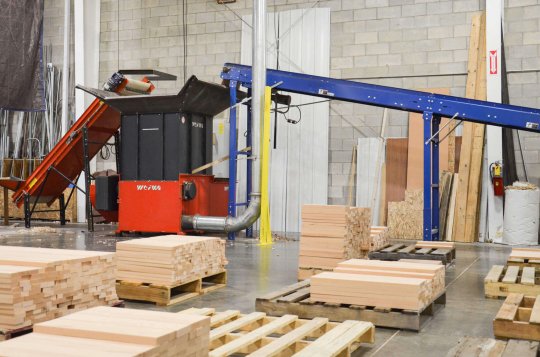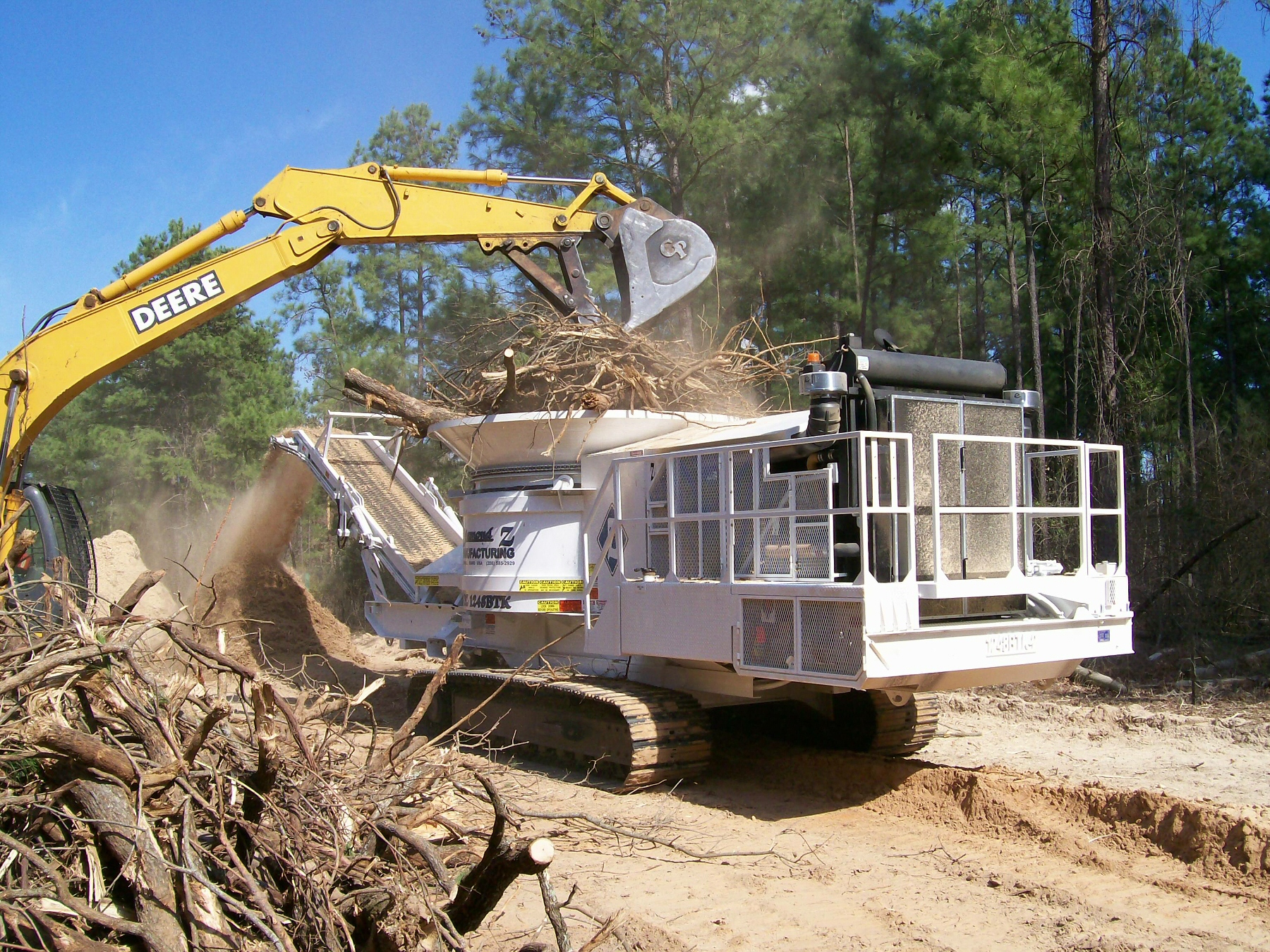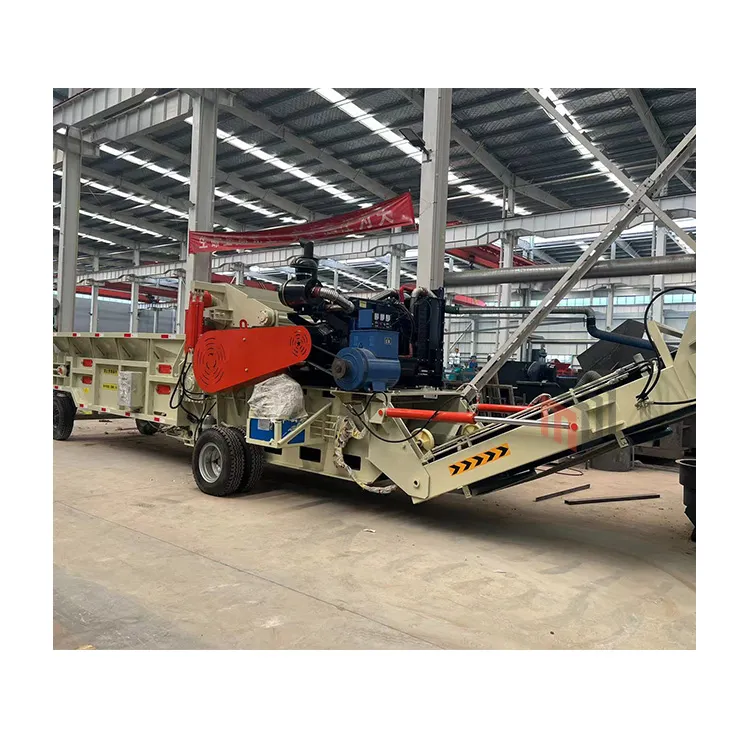Effective Wood Processing Starts Here: Unlock the Possible of Wood Grinders
Effective Wood Processing Starts Here: Unlock the Possible of Wood Grinders
Blog Article
Open the Possible of Recycling With Advanced Timber Grinders: Streamline Procedures and Minimize Waste
In today's globe, the need for efficient waste management and sustainable options has actually come to be significantly essential. One such service that holds excellent pledge is the innovative timber grinder, an innovation that has the prospective to unlock truth capacities of reusing. By minimizing and enhancing operations waste, these mills use a novel strategy to dealing with the challenges of wood waste processing. Yet what precisely makes these equipments so effective? How do they enhance reusing operations and take full advantage of resource utilization? And possibly most importantly, exactly how do they add to reducing our ecological footprint? In this conversation, we will check out the response to these concerns and clarified the untapped capacity of advanced wood grinders in changing the recycling industry.
Reliable Timber Waste Handling
Efficient timber waste processing is essential for streamlining recycling operations and optimizing the use of this beneficial source. Timber waste, such as wood, lumber, and pallets, is a significant byproduct of numerous markets, including building, furnishings production, and demolition. To properly reuse this waste and handle, progressed timber grinders have become a key service.
Advanced wood mills are created to effectively process wood waste into multiple-use products, such as timber chips or mulch, which can be used for different purposes. These mills use effective cutting systems and advanced shredding innovations to break down timber waste right into smaller sized, more workable pieces. By decreasing the dimension of the waste, the mills help with much easier transportation and storage space.
In enhancement to size decrease, progressed wood grinders likewise play a crucial function in separating pollutants, such as screws and nails, from the timber waste. This ensures that the processed product is tidy and complimentary from contaminations, making it appropriate for a wide variety of applications.
Efficient wood waste handling not only aids improve recycling operations yet likewise minimizes waste. By handling and recycling timber waste, services can decrease their reliance on virgin resources, preserve energy, and lessen the ecological effect associated with typical waste disposal methods.
Sustainability in Waste Management
Advertising sustainable methods and ecological responsibility, waste monitoring in the context of wood processing entails executing efficient and eco-friendly approaches. In today's globe, where ecological issues go to the center, it is essential for industries to take on lasting waste management practices. With the increasing demand for timber products and the subsequent rise in timber waste, it has actually ended up being critical to discover innovative options that reduce the influence on the setting.
Sustainability in waste management includes a number of key facets. It is crucial to minimize the amount of waste generated in the wood processing industry. By carrying out reliable timber grinding strategies, such as using sophisticated wood grinders, the market can substantially decrease the volume of waste created. These grinders are capable of refining large quantities of timber waste right into smaller, much more manageable items, which can after that be repurposed or reused.
Second of all, sustainable waste administration focuses on reusing and reusing materials whenever feasible. Timber waste can be transformed into beneficial resources such as biomass fuel or garden compost. By repurposing wood waste, the industry can decrease its reliance on virgin products and lessen the requirement for landfill area.
Last but not least, lasting waste management entails minimizing the environmental impact of garbage disposal. Wood waste that can not be reused or recycled ought to be gotten rid of in an environmentally accountable way. This may include proper sorting and partition of waste, in addition to utilizing modern technologies that convert waste right into energy via processes like anaerobic food digestion or incineration with energy recuperation.
Enhanced Recycling Procedures
To optimize wood waste monitoring and maximize recycling initiatives, the implementation of sophisticated timber mills is essential for boosting reusing procedures (wood grinders). These machines use a variety of advantages that can dramatically boost the effectiveness and performance of reusing procedures
One of the crucial benefits of advanced timber mills is their capacity to process a variety of timber waste products. From dog crates and pallets to tree branches and stumps, these mills can successfully damage down timber waste into smaller, much more workable pieces. This not just helps with much easier transport and storage space but additionally makes it possible for the recycling of a greater volume of timber waste.

Furthermore, advanced timber mills are equipped with attributes that enhance security and minimize downtime. These equipments are developed to run successfully and reliably, reducing the demand for repair and maintenance. This allows reusing procedures to run smoothly and regularly, inevitably boosting efficiency and minimizing expenses.
Maximizing Resource Usage
With the capability to successfully refine a vast array of timber waste products, progressed wood grinders play a pivotal role in making best use of source utilization within reusing procedures. These machines are developed to effectively convert wood waste into valuable wood chips or compost, which can after that be utilized in various sectors such as landscaping, biomass energy manufacturing, and pet bedding.
By utilizing advanced timber mills, reusing procedures can dramatically decrease the quantity of timber waste that ends up in landfills, aiding to preserve useful land fill space and minimize ecological effect. The processed timber waste can be repurposed and made use of as a renewable source, adding to an extra lasting and round economic climate.
Moreover, progressed wood grinders allow recycling procedures to draw out the optimum worth from wood waste products. These makers have the ability to create constant and high-quality wood chips or mulch, which can be sold as beneficial products in the market. This not just generates revenue for reusing procedures however additionally produces opportunities for the growth of new markets and collaborations.
In addition to maximizing resource use, progressed wood mills additionally contribute to the general effectiveness of reusing operations. These makers are designed to deal with big volumes of wood waste rapidly anchor and properly, decreasing handling time and labor costs. They also have security functions and advanced modern technologies that ensure dependable and smooth operation, reducing downtime and making the most of efficiency.
Minimizing Ecological Impact

Among the key advantages of making use of advanced wood grinders is the production of beneficial items from wood waste. These grinders have the ability to transform wood waste right into timber chips, compost, or biomass gas, which can be used in different markets such as construction, landscape design, or energy production. By changing waste into helpful products, these grinders contribute to a more circular and lasting economic situation.
In addition, progressed timber grinders are geared up with advanced technologies that boost their efficiency and minimize energy usage. They are designed to take care of huge quantities of wood waste in a brief quantity of time, enabling reusing procedures to enhance their processes and increase performance. This not just decreases the environmental effect of reusing operations but additionally enhances the general performance of wood waste monitoring.
Verdict
In final thought, progressed timber grinders offer an encouraging service to unlock the capacity of recycling by decreasing and enhancing procedures waste. These mills allow efficient timber waste handling, boost recycling procedures, make the most of source usage, and reduce the ecological impact. wood grinders. By embracing these modern technologies, organizations can add to a more lasting waste management system, making sure the reliable use of resources and lessening ecological impact

Report this page